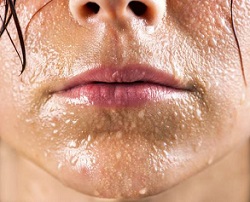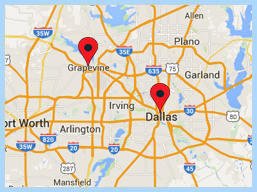What Your Sweat is Telling You

Most of us living in Texas are very familiar with sweating. But what is it? Why is it important in the body? What can that sweat tell you about your health?
What is Sweat?
Sweat is produced in response to various stimuli by tiny glands present all over your body. There are two main types of sweat glands in the body: Eccrine & Apocrine. Eccrine sweat glands form the majority of sweat glands and are present throughout the whole body. They produce odorless sweat and promote cooling of the body. Apocrine glands are present mainly in the armpit and groin. They produce a thicker sweat that often reacts with bacteria on the skin to create a foul odor.
Why is sweat important to the body?
The main reason your body sweats is to cool down. Some people sweat more easily. A sudden change in the way you sweat or the odor could indicate an underlying health condition. High environmental temperature and physical activity triggers the release of sweat, which evaporates on the skin surface to cool down the body. Anxiety and emotions can also trigger increased sweating in the palms, soles and armpits. Remember those clammy palms during exams and interviews? Other triggers include spicy food, caffeine, alcohol, cigarettes and certain medications that help control blood pressure, diabetes and depression.
What can sweat tell you about your health?
Sweat can reveal more than body temperature if you know the signs to look for. If you have an increase in sweating but your body temperature shouldn’t be hot, think about the following things: are they applicable to you? A frequent reason for increased sweating is when your body runs a fever during illness. During this time the body’s temperature is raised to help make your body inhospitable to bacteria and viruses. As the body begins to cool this can trigger sweating. Hormonal changes can also change sweat levels, particularly during pregnancy or menopause for women. Other conditions such as chest pain, cancer and diabetes can also increase sweating.
Is there any risk to sweating excessively?
Some people naturally sweat excessively. This is often caused by hyperhidrosis, a condition characterized by excessive sweating, where nerves that activate sweat glands become overactive and respond even to minimal stimuli. There are two types: primary focal hyperhidrosis or secondary generalized hyperhidrosis. In the primary focal type there is no underlying cause and sweating is limited to specific parts of the body such as the forehead, palms and soles. Secondary hyperhidrosis is caused by an underlying medical condition or certain medications and is associated with generalized sweating that may even occur at night. Medical conditions that can cause secondary hyperhidrosis include arthritis, obesity, diabetes, heart failure and certain nervous system conditions. While some treatments exist for excessive sweating including topical antiperspirants and iontophoresis, Botox injections, lasers, or surgery, at Healthy Living Dallas we want to dig deeper and make sure that a medical condition isn’t lurking around.
Treatment for excessive sweating includes topical antiperspirants that act by plugging sweat gland pores, signaling your body to stop sweat production. Iontophoresis is another treatment option which involves passing an electric current to areas of excessive sweating (usually the hands and feet). Other treatments may include Botox injections, lasers or surgery, to block the nerve signals to sweat glands.
Is it dangerous if I rarely sweat?
Many people might call you fortunate to sweat infrequently but since sweat plays an important role in health and body temperature regulation, you’re likely at risk for heat-related concerns. Anhidrosis is the inability to sweat and may be caused by certain diseases, medications or skin diseases. It can affect one part of your body or can be more generalized. This can lead to overheating of the body, and can leading to muscle cramps, exhaustion and even death. Treatment usually involves various methods of cooling down and treating the underlying condition.
Next time you feel like you’re sweating for no reason (or maybe not sweating when you should!) think through these steps. If you feel that you sweat excessively, make sure to let us know and to get screened for arthritis, obesity, diabetes and heart failure.
Dallas
3800 San Jacinto
Dallas, TX 75204
(214) 827-8777
Driving DirectionsHours:
Monday, Wednesday,
Friday: 8:00 a.m. - 11:00 a.m.
Tuesday: 4:00 p.m. - 7:00 p.m.Grapevine
823 Ira E. Woods Avenue
Grapevine, TX 76051
(214) 827-8777
Driving DirectionsHours:
Thursday: 1:30 p.m. - 5:00 p.m.






